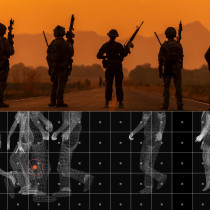Small Business's Networks Are Not Immune to Hackers' Attacks
Stan Choe of The Charlotte Observer reports that "They're out there. For profit or for fun, those worms and viruses -- along with the human hackers who create them -- constantly probe computers for weaknesses. Chances are, if your computer is patched into a network, someone is poking around right now, or will be within the hour, security consultants say.



































































